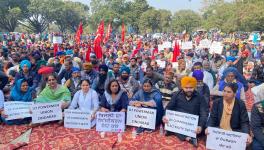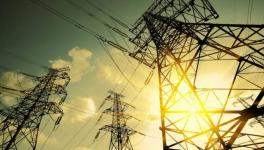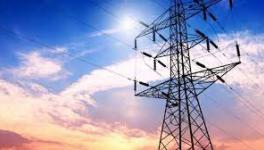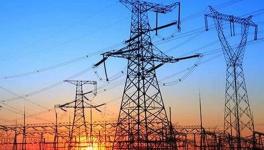Electricity Employees, Engineers to Observe National Protest Day Against Electricity (Amendment) Bill
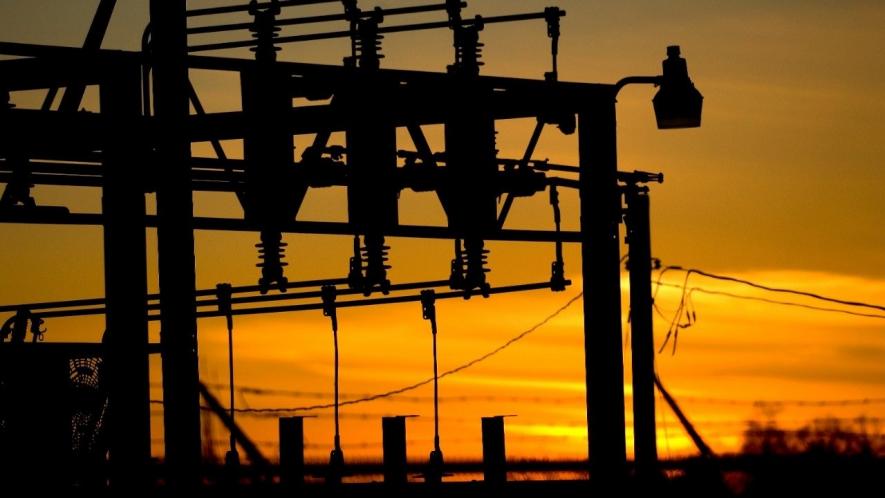
The electricity employees and engineers across the country will observe a National Protest Day on June 1, to oppose the proposed Electricity (Amendment) Bill, 2020. The nationwide protest will be under the banner of National Co-ordination Committee of Electricity Employees and Engineers (NCCOEEE)- a broad based united platform of almost all the national federations of electricity employees and engineers.
The proposed amendment, which gives more power to private players, comes at a time when the country is combating the menace of COVID-19 pandemic. On April 17, 2020, the Ministry of Power notified the Electricity (Amendment) Bill, 2020, seeking public comments within three weeks. One of the main objectives of the Bill is “transferring assets of the power network from Generating Station Bus to doors of 25 crore households and farmers’ fields, industries and all levels of consumers developed through seven decades at the cost of public exchequer to private hands, in other terms cronies closer to government,” a statement released by NCCOEEE read.
The amendment bill proposes some policy amendments and functional amendments to the Electricity Act of 2003. These amendments have been made in the name of addressing some “recurring issues”, and to promote further commercial incentive for private players to enter the market in the generation, distribution and transmission of electricity.
Also read: COVID-19 in Rural India-XXXVI: Farmers Forced to Sell Paddy Below MSP in Bengal’s East Medinipur
The NCCOEEE added, “All of you are aware that when the Electricity Bill, 2000 was drafted 20 years ago, to unbundle SEBs, series of alluring words like cheaper power for all through promotion of competition and efficiency were floated. Electricity Act, 2003 was passed and in force for a period over 15 years, but none of the words like cheaper power used in the vocal jugglery is found visible. Newly privatised areas like Delhi faced 7 times tariff hike over a period of 12 years.”
NCCOEEE further pointed out that the so called efficient multinational AES and indigenous private company BSES of Reliance Energy Ltd miserably failed in Odisha including the creamy layer of the state. It stated, “OERC revoked its license and the decision of the regulator was endorsed by the Hon’ble Supreme Court. Franchises experiences of Gaya and other cities in Bihar, Kanpur in UP, Gwalior and Ujjain in MP, Ranchi and Jamshedpur in Jharkhand, Jalgaon and Aurangabad in Maharashtra was worst. Tata and Reliance (now Adani) pushed the tariff level highest in Mumbai.”
The proposed Bill prescribes 3-tier privatisation in distribution business, according to the unions, and last tier i.e. franchises will not require any license. Also the Ministry of Power is conceiving innovative idea of informalisation of risk prone electricity distribution job requiring high level of skill and acumen. “We cannot accept this odd intention of the government to make the workmen scapegoat of surrendering safety by the lawmakers,” the statement read.
Meanwhile Kerala Chief Minister Pinarayi Vijayan has expressed his dissent over the Centre’s efforts to privatise power sector. Vijayan, in a letter to R. K. Singh, Power Minister, stated that the Centre’s move is “against the policy of having a check on the enteritis coming into an important sector like power distribution.”
Along with Kerala, Governments of Bihar, Jharkhand, Telengana, Tamil Nadu, Puducherry etc. have urged the Centre to scrap the Bill since it aims to change the basic characteristics of electricity from a service of socio-economic importance to a market driven profit bound commodity.
The policy of cross-subsidy had actually been introduced to provide electricity to poorer citizens and farmers from the initial days of establishment of SEBs. The policy permeated socio-economic development of the country to the extent possible and converting the country from food scarce to food surplus one. While Electricity Act 2003 intended to abolish the system. After opposition from public, the Act was amended in 2007 and the benefit of cross subsidy continues till date. However, “the same efforts are being made to snatch away the rights of access to electricity for the poor people and farmers through this bill proposing a Direct Benefit Transfer (DBT) by the state governments,” the statement added.
“All are to note the contradiction in the proposition of the Bill. Electricity will be virtually removed from the concurrent list of the Constitution and set as subject of Centre even up to selection of the members of the regulatory commission. Crux of the proposition: states will cease off the power related to electricity but they are to bear the subsidy burden irrespective of financial health of the state,” it stated.
Also read: Nationalism and Humanism in the Indian State
NCCOEEE further explained that in the case of the agricultural consumers: a) only the land owners would be eligible to subsidies, whereas cultivation is often done by tillers/share croppers who pay for the electricity b) the large difference between the cost of water provided by irrigation canals and ground water extracted by electricity will become more unsustainable with increase in the cost of electricity vis-à-vis cost of agro products. It is envisaged that right to electricity for the consumers will be factored by DBT. Productivity of farmers’ crops might be left upon the fate of DBT or rain fed irrigation only.
The Co-ordination Committee of Electricity Employees, Engineers and Pensioners (CCOEEEP) in Assam also stated that they will carry out a protest in Assam as a part of the Nationwide Protest Day against the bill on June 1.
While in Andhra Pradesh, Communist Party of India (Marxist) has staged a day long protest against the increase in electricity tariffs. CPI(M) State SecretaryP Madhu urged the state government to oppose the Electricity (Amendment) Bill 2020 in Parliament to safeguard the interests of Andhra Pradesh brought out by the central government. The Bill would harm the interests of the common man, and the proposals were a direct attack on the federal spirit of the Indian Constitution, he pointed out.
Get the latest reports & analysis with people's perspective on Protests, movements & deep analytical videos, discussions of the current affairs in your Telegram app. Subscribe to NewsClick's Telegram channel & get Real-Time updates on stories, as they get published on our website.











